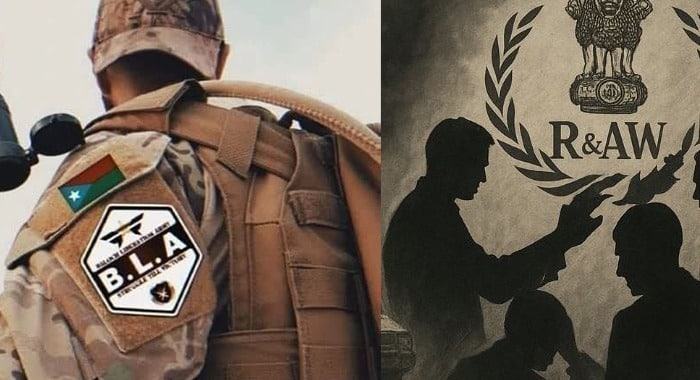Serious differences have reportedly emerged between the Balochistan Liberation Army (BLA) and India’s Research and Analysis Wing (RAW) over multiple operational failures and internal challenges, including delays in payments, failed missions, and lack of secure logistical support.
According to credible sources, tensions escalated following the botched attack on a train in Jaffarabad, the non-availability of safe houses, declining recruitment, and the inability to effectively target Chinese nationals in Balochistan. Discontent has also grown within BLA and other RAW-backed groups, who are now demanding better-trained operatives to support their activities. However, the on-ground deployment of Indian nationals has reportedly been suspended after the suspected abduction of a senior RAW officer, Ashok Sharma, near Iran’s Chabahar port last month—an operation believed to have been executed by Pakistani intelligence.
RAW, in internal assessments, is said to blame the incident on infiltrators within BLA ranks, further deepening mistrust between the two sides. In a sign of growing defiance, BLA mercenaries have refused to follow directives from Indian handlers based in Dubai until the crisis is resolved.
The widening rift and successive failures are being viewed as a strategic debacle for RAW, raising critical questions over National Security Advisor Ajit Doval’s long-standing “pay-per-hit” doctrine that has underpinned India’s covert strategy in Balochistan. Despite the heavy financial investment in these operations, the outcomes have fallen short, triggering internal scrutiny and signaling a potential shift in regional intelligence dynamics.





